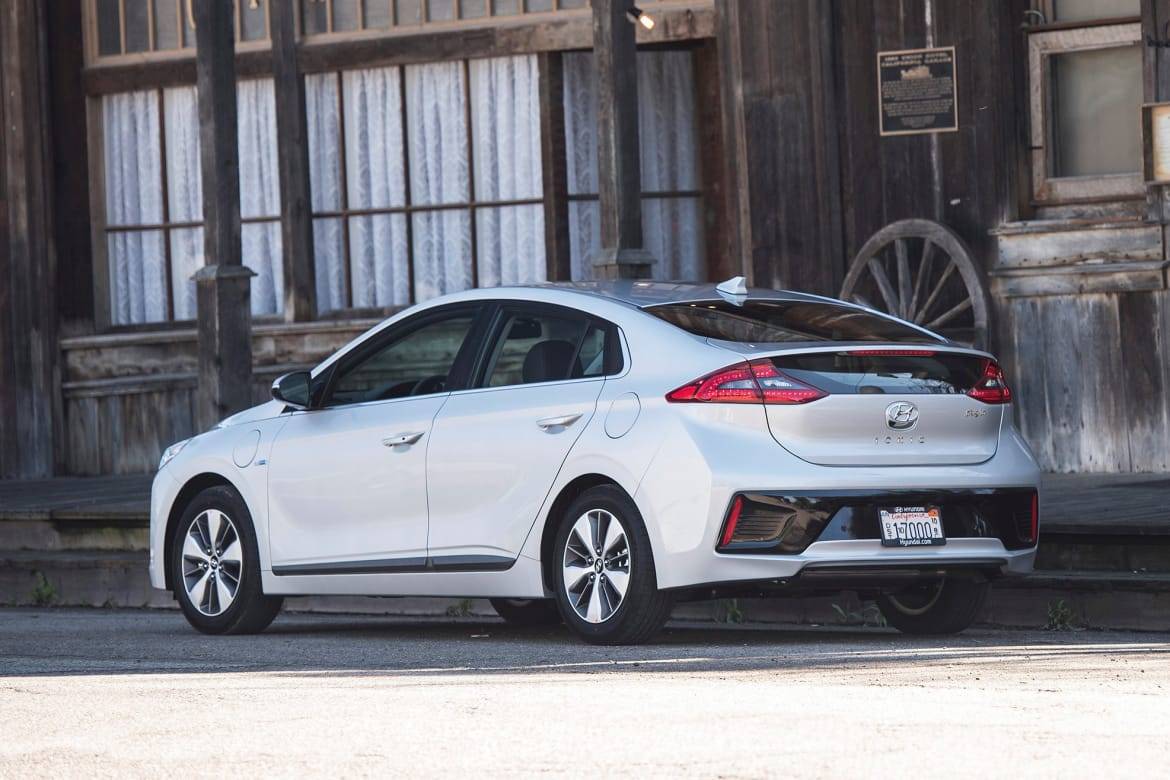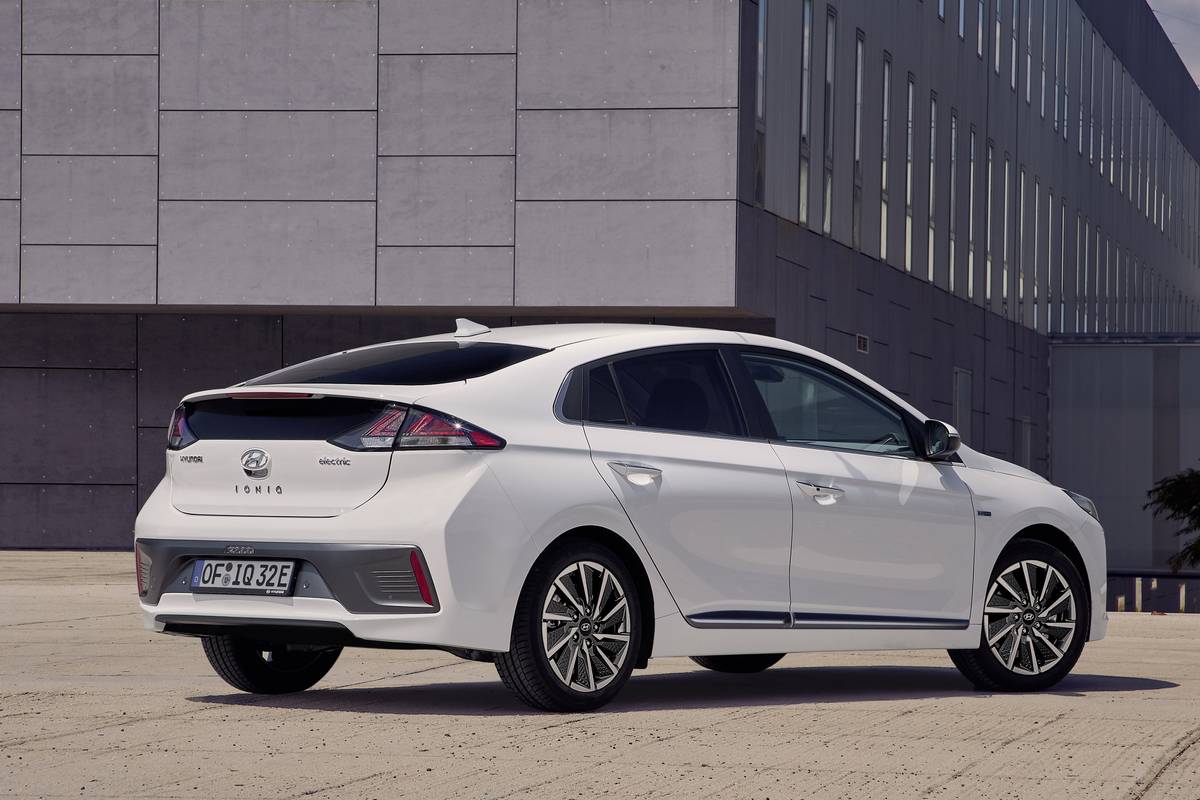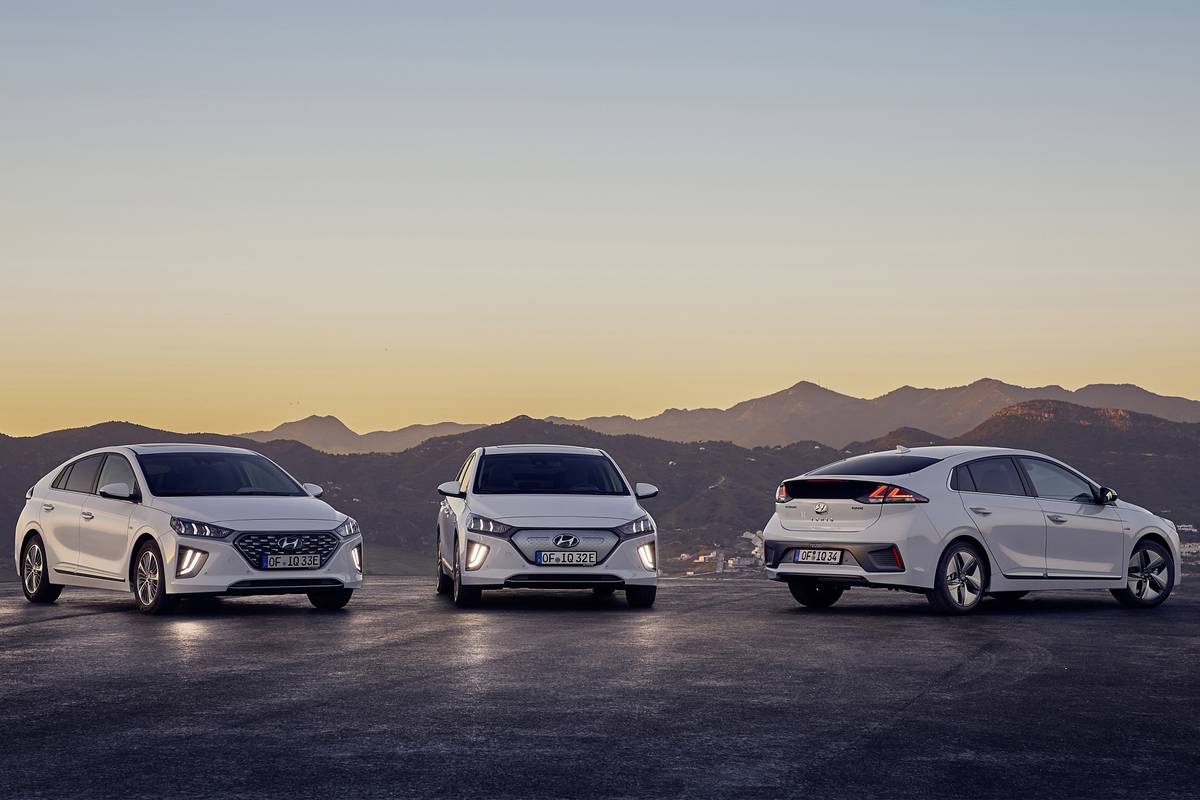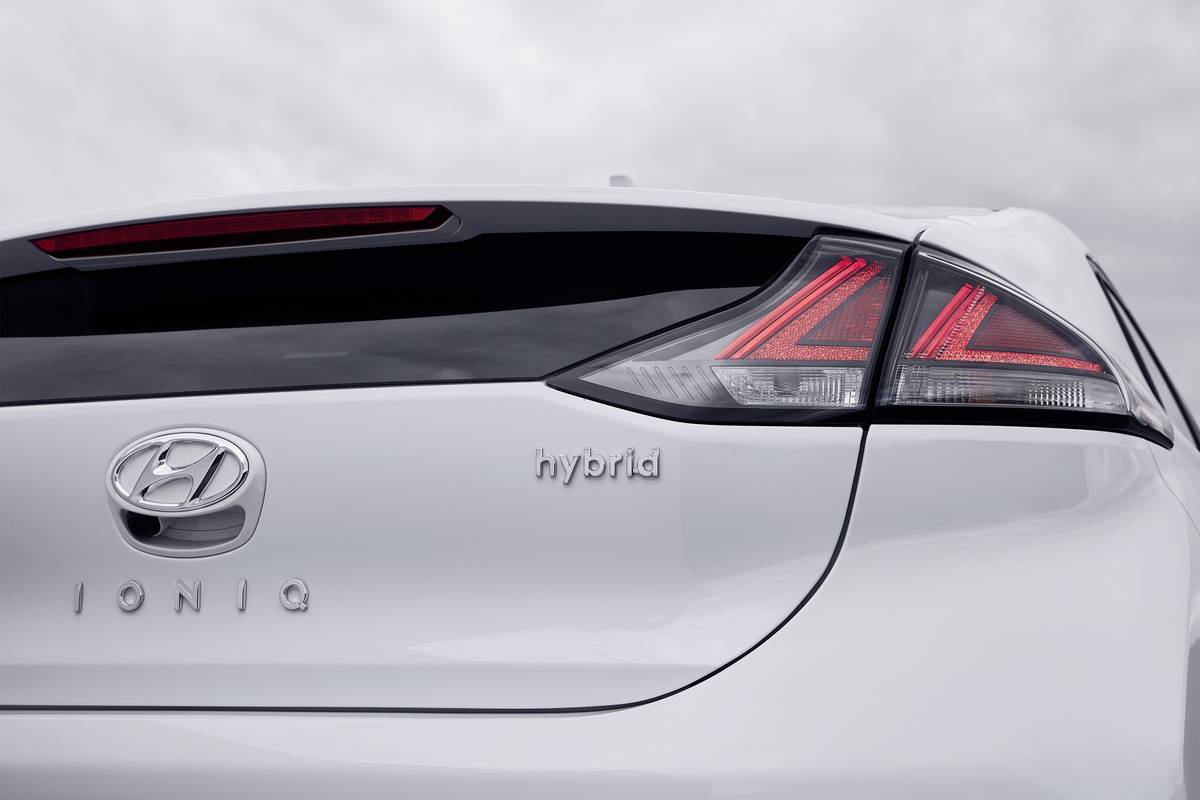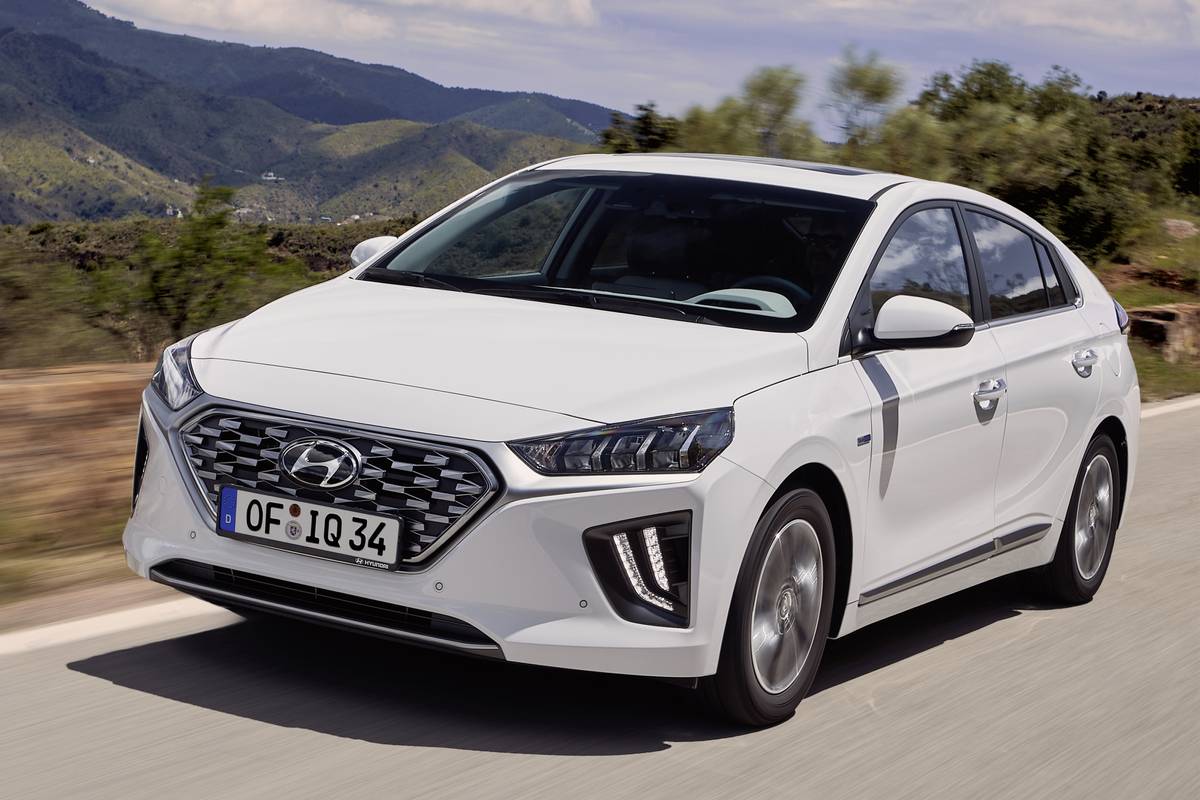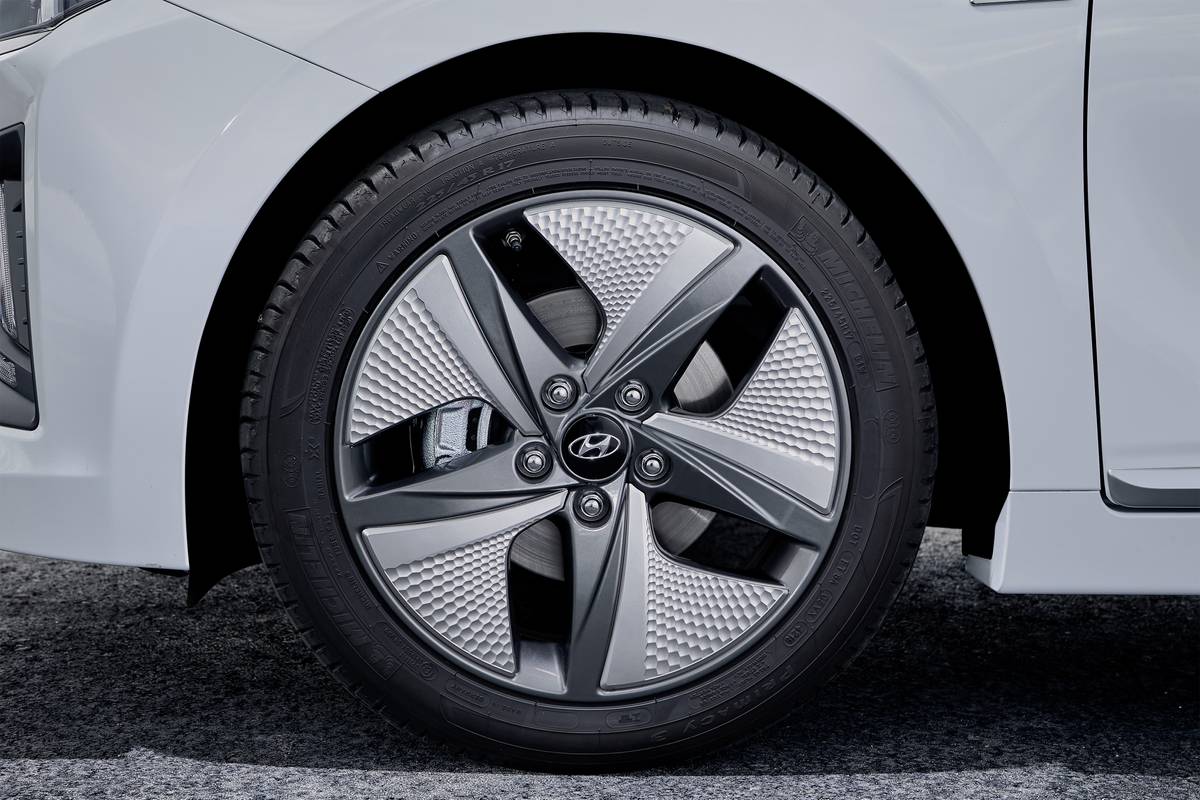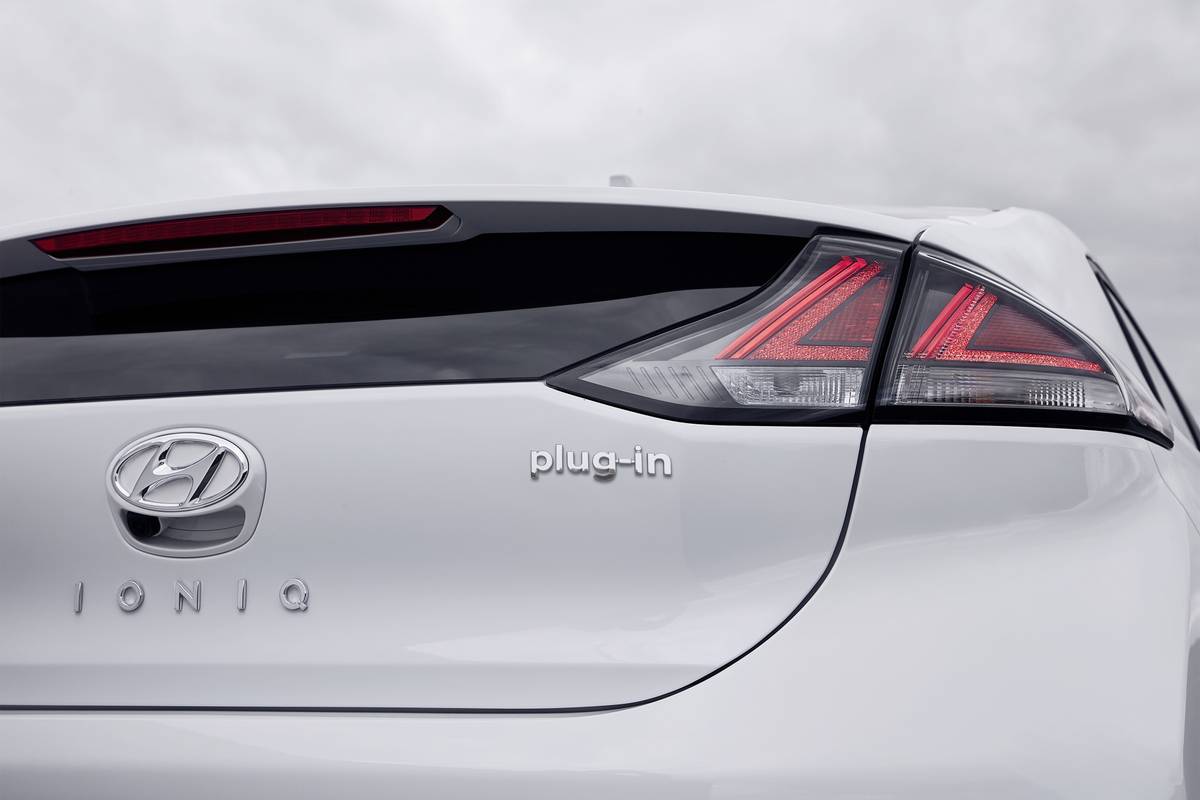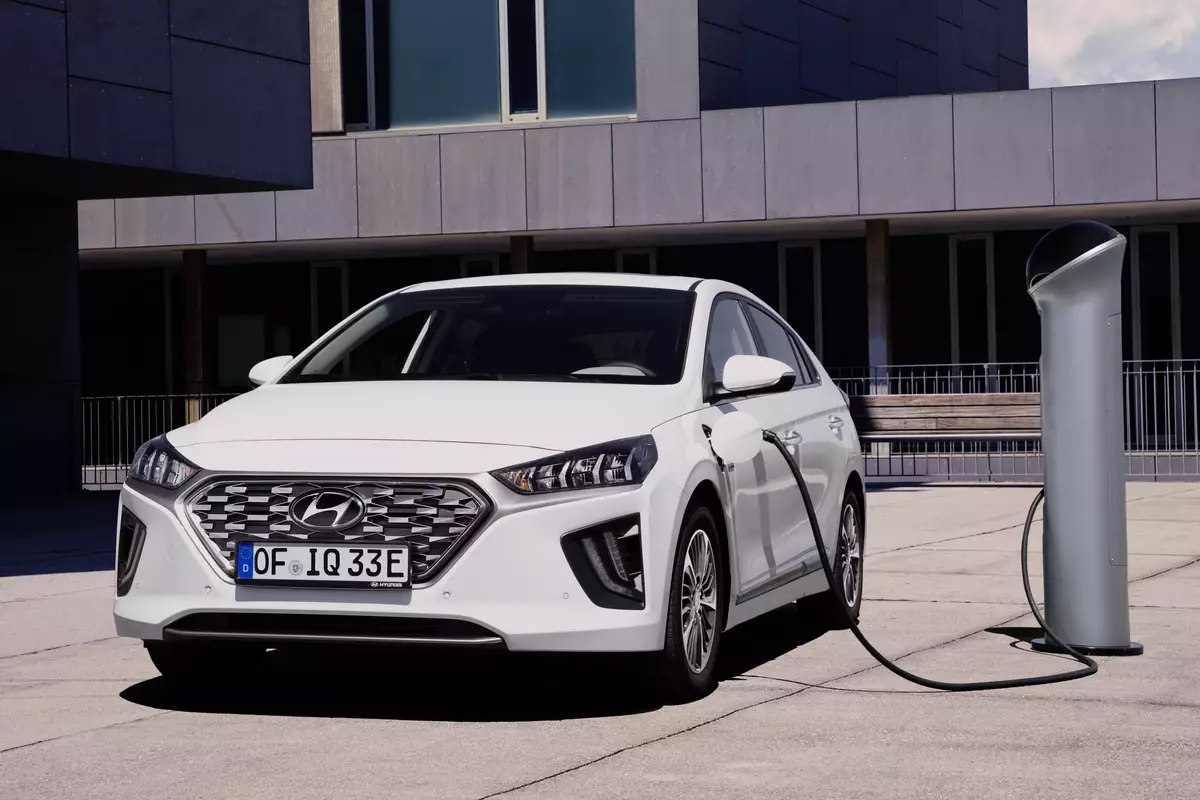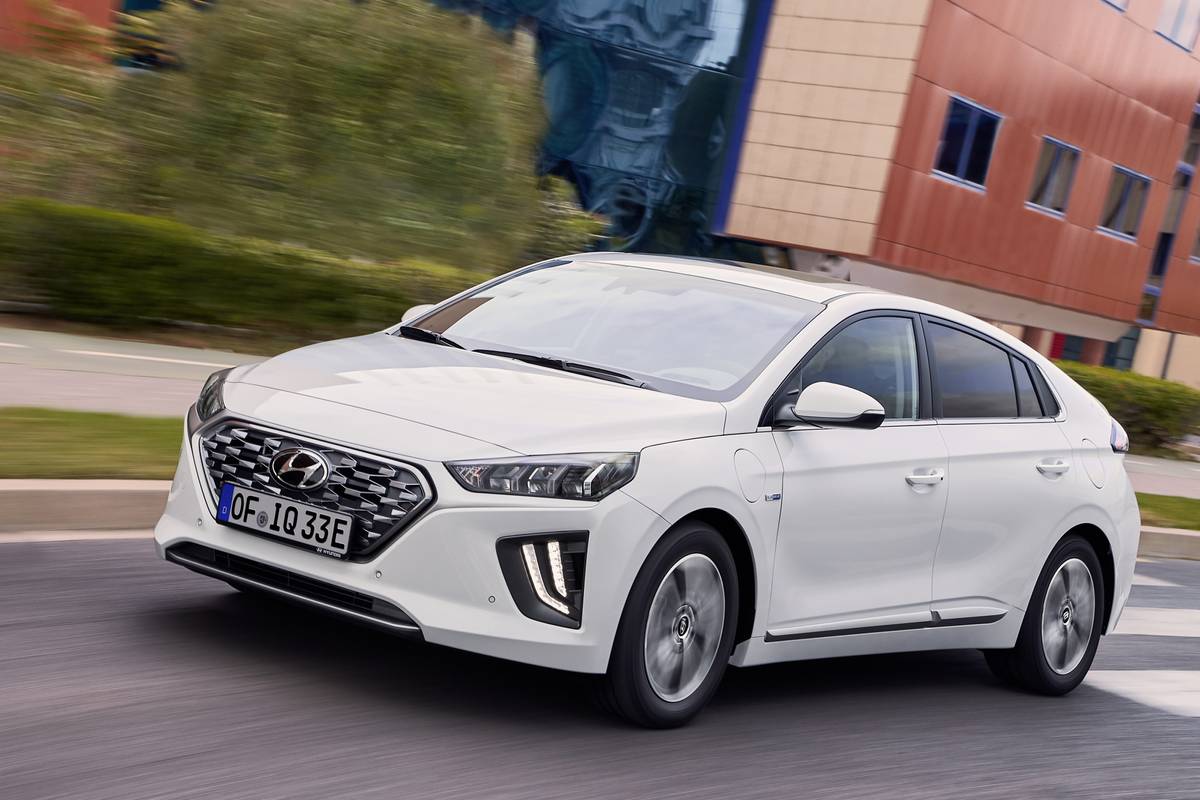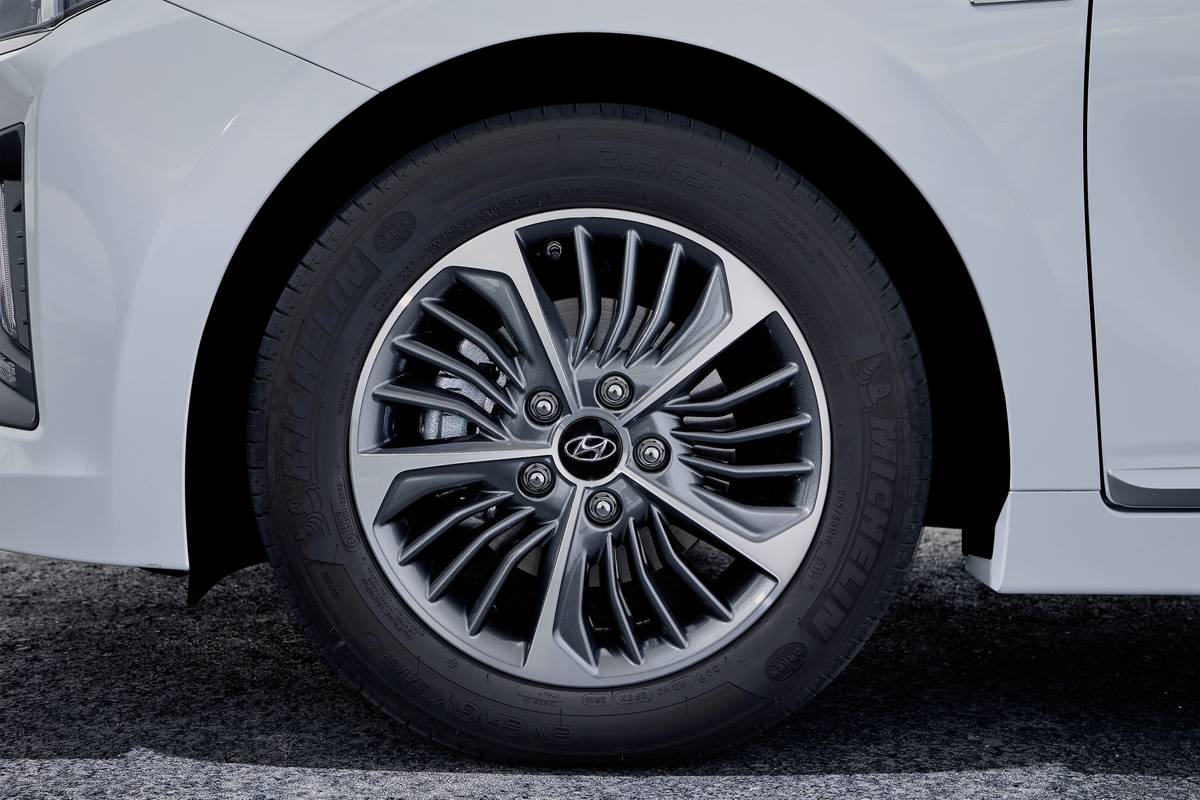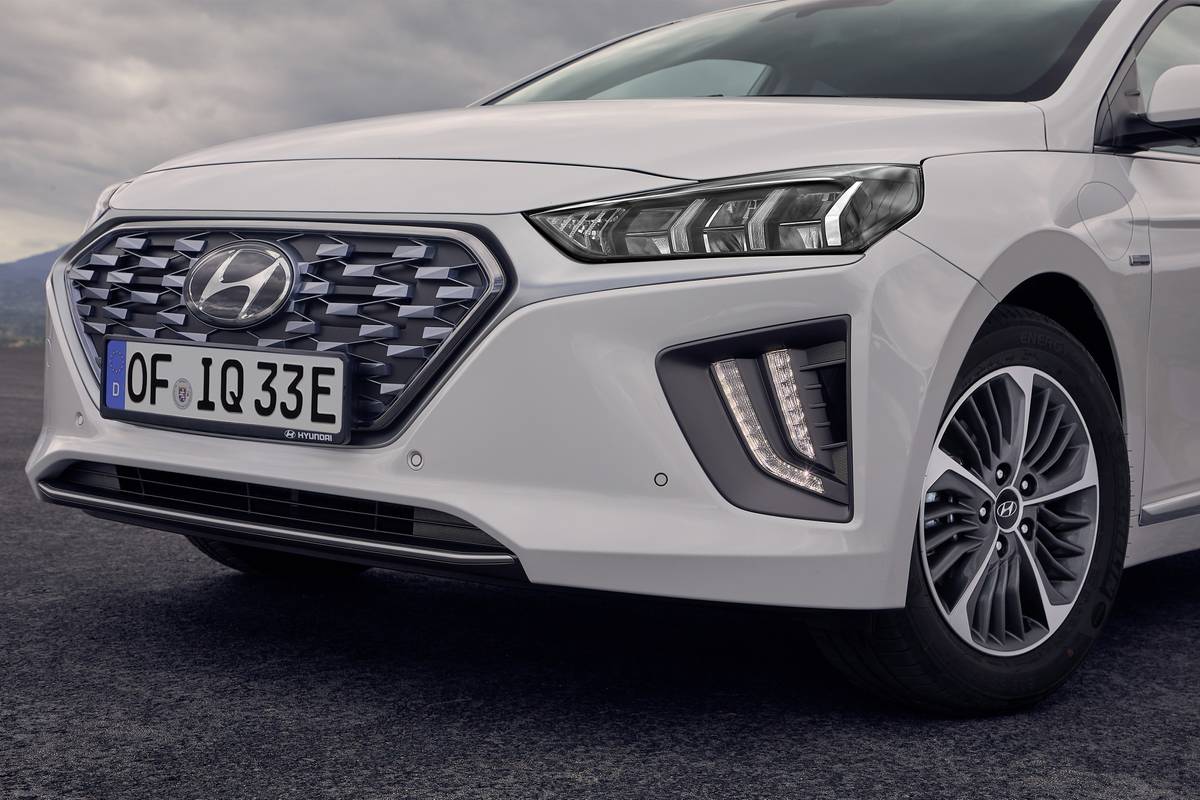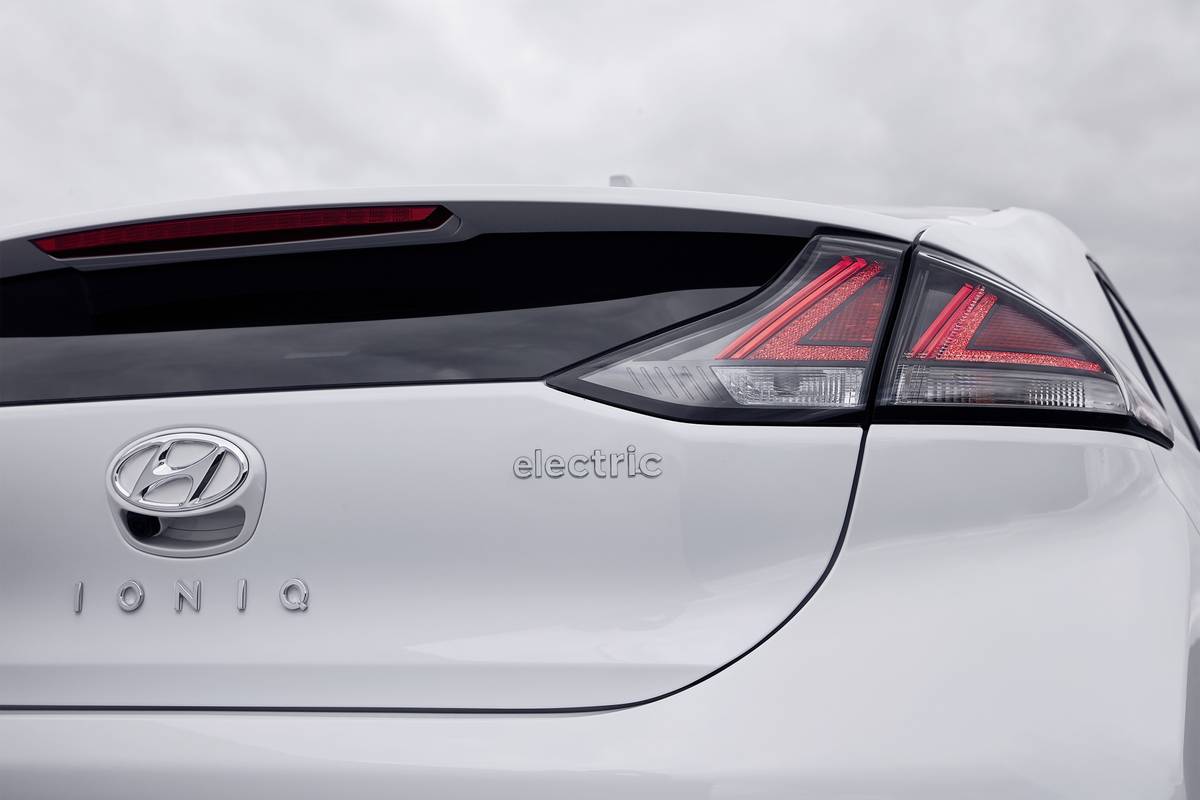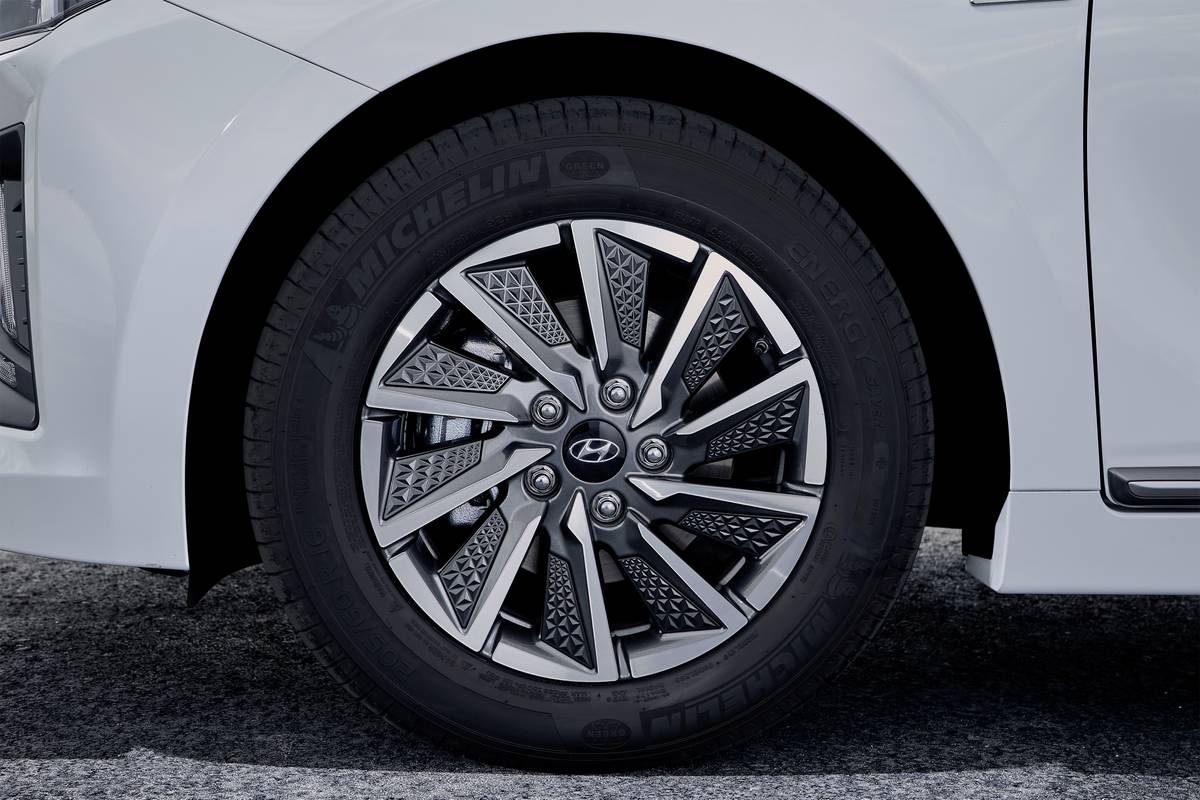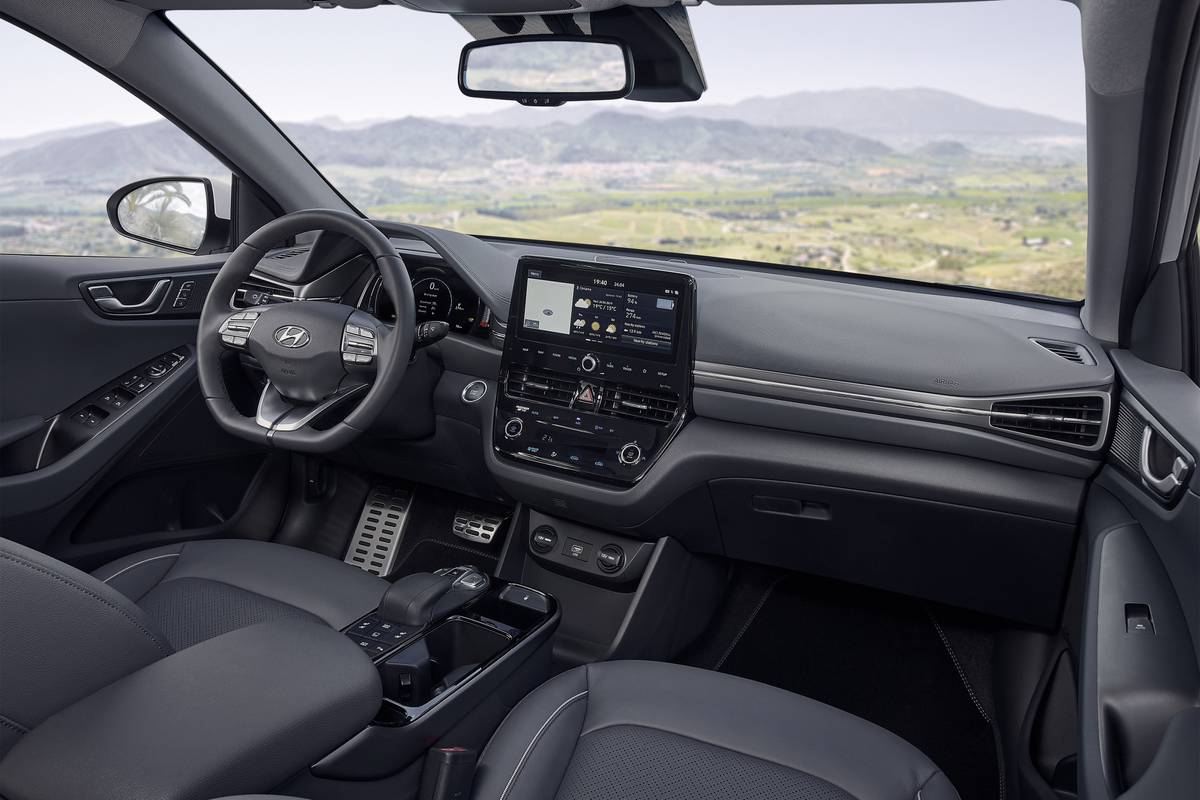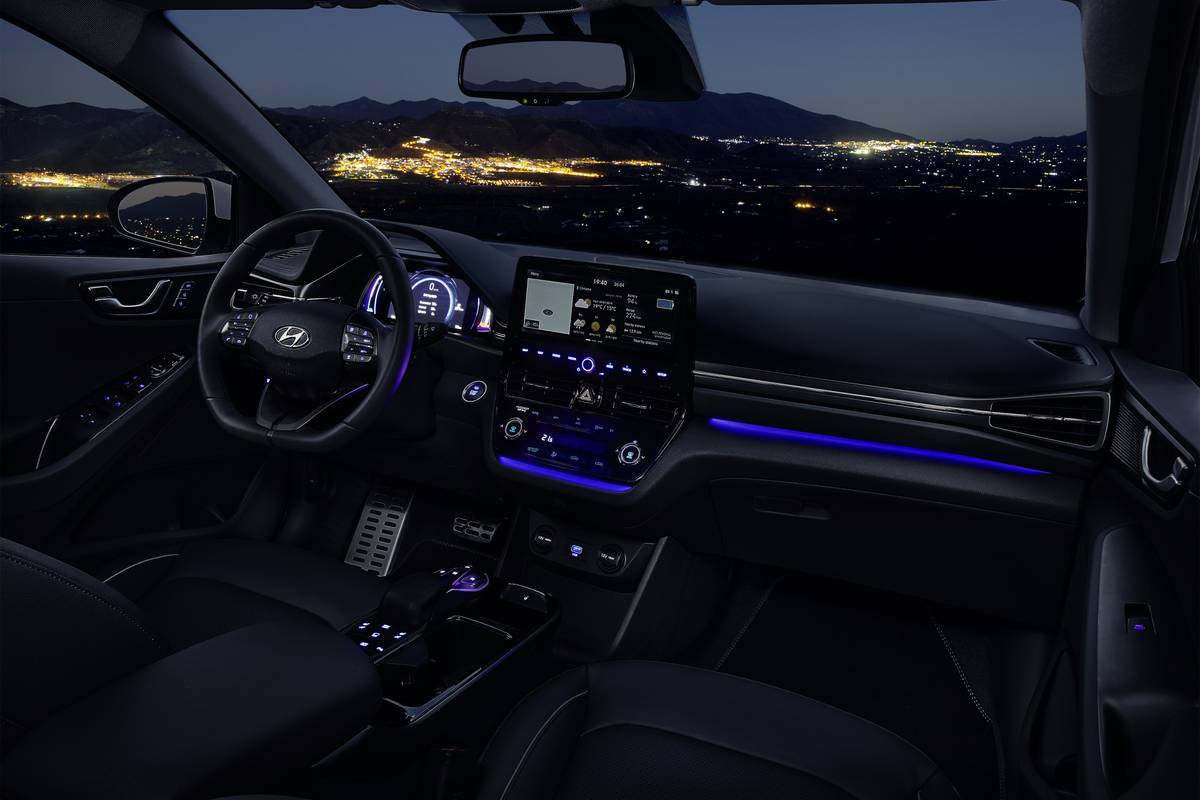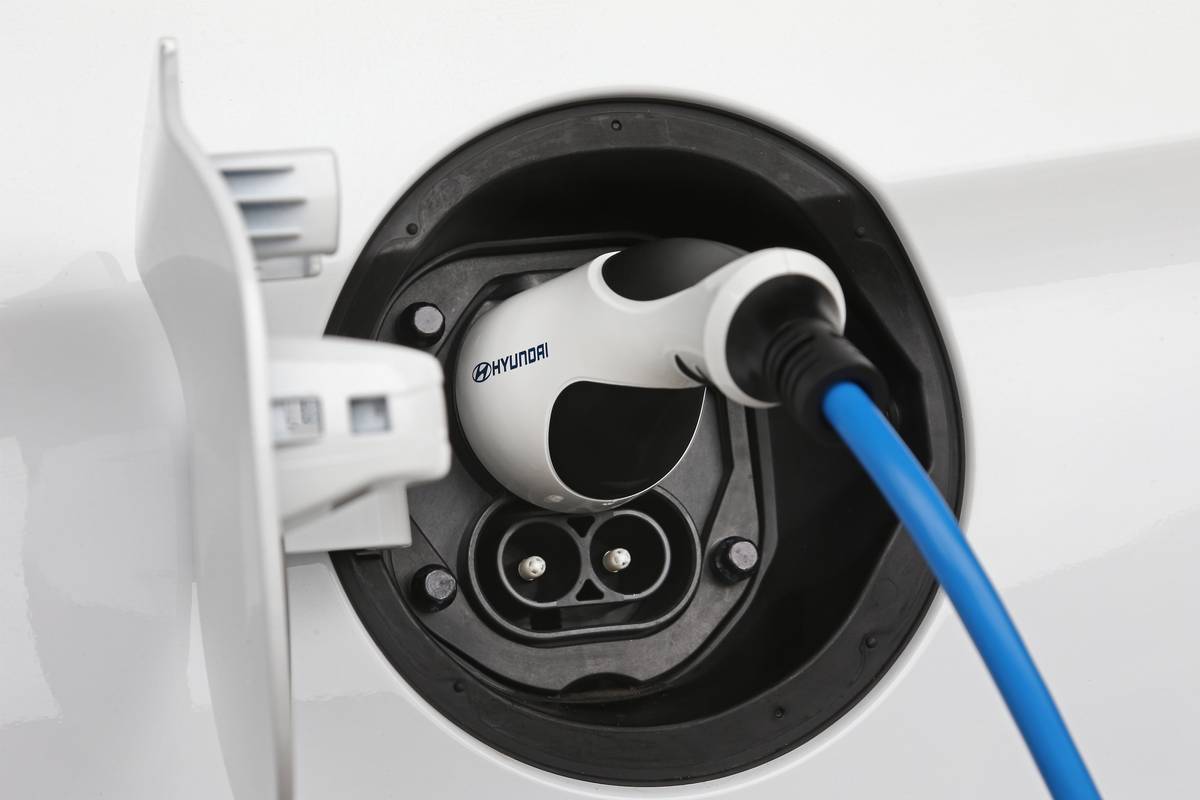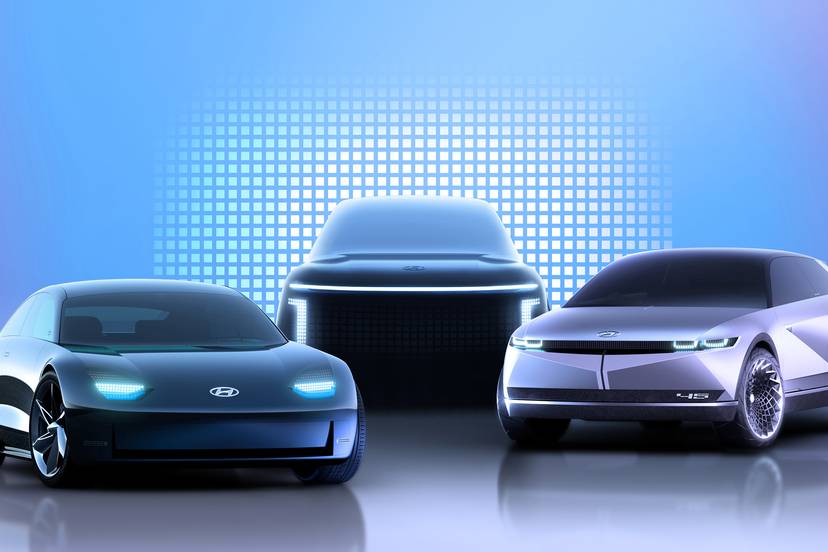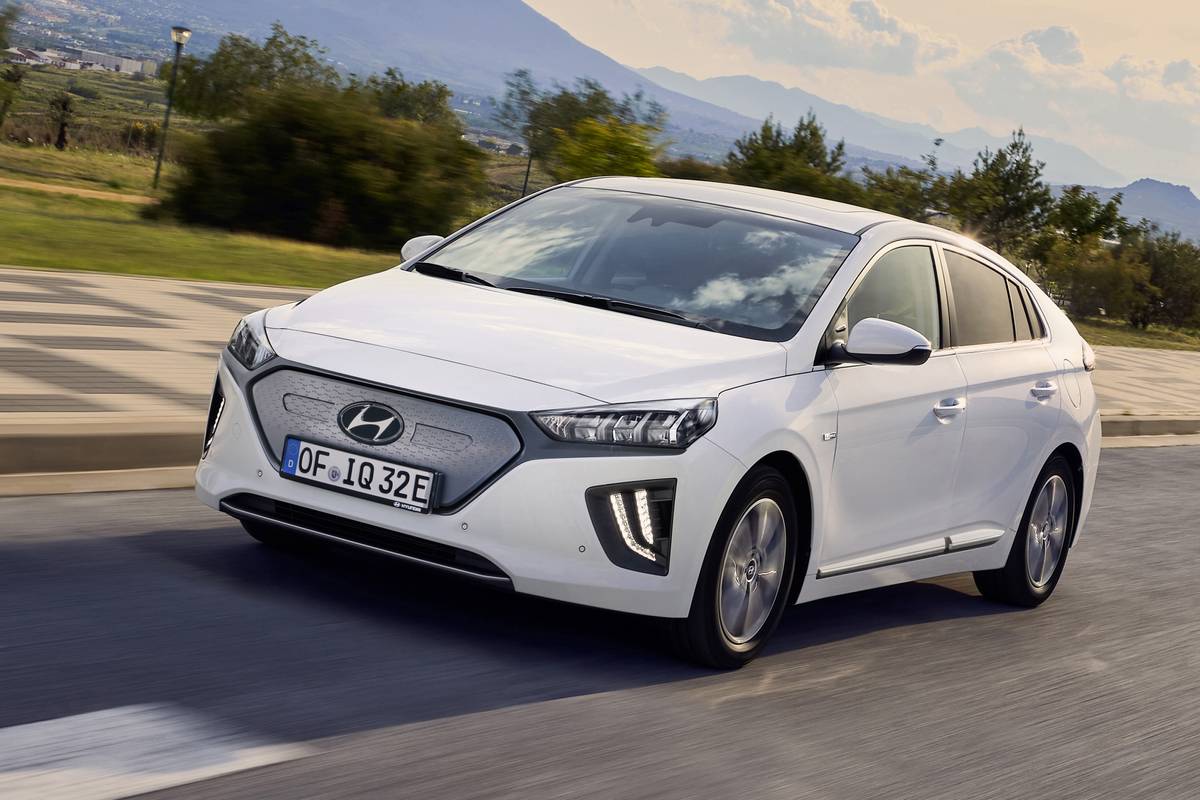
Hyundai will show off its refreshed-for-2020 Ioniq electrified compact sedans at the 2019 Los Angeles Auto Show. The juicier Ioniq — which rolled out for 2017 and has hybrid, plug-in hybrid and full electric versions — comes as Hyundai announced plans to expand its offering of “eco-friendly” or alternative-power vehicles to 13 by 2022.
Related: More 2019 L.A. Auto Show Coverage
The 2020 Ioniqs are getting a U.S. unveiling, but already have been revealed for Europe with styling and interior tweaks, as well as with a bigger 38.3-kilowatt-hour battery (up from 28) and more range for the EV version.
EPA ratings already are out for the new 2020s, and the Ioniq EV now is rated for 170 miles of range, up more than 35 percent from 2019’s 124 miles (compare them here). The EV also gets a more capable 7.2-kilowatt onboard charger for faster fill-ups. Ratings for the other models also are posted and remain unchanged, including 29 miles of electric range for the plug-in hybrid. See EPA ratings for the 2019s here and the 2020s here.
The European-spec 2020s (gallery above) also revealed a new grille for the gasoline-engine models, with new bumpers and tweaked headlights and taillights for all. Inside, the dash is redone and the screen moves atop the dash in the tablet style now used in other new Hyundais. There also is at least the option of a larger 10.25-inch touchscreen, up from 8 inches, and there are touch controls for the climate system.
By Hyundai’s accounting, the three refreshed 2020 Ioniq versions apparently count for three of the 13 new eco-models coming. A fourth, next up after the freshened Ioniqs, will be a hybrid version coming in 2021 of the newly redesigned Sonata sedan (the current Sonata offers a hybrid in conventional and plug-in form). Hyundai alternative-fuel vehicles also already include an EV version of its Kona small SUV in select markets and the Nexo fuel-cell vehicle in California.
Hyundai says that six of the 13 coming vehicles will be sedans and seven SUVs. Given the short time frame, most or all seem likely to be refreshed or electrified versions of existing product lines rather than all-new vehicles. Said Mike O’Brien, Hyundai vice president of U.S. product, corporate and digital planning: “As the automotive industry evolves to meet the needs of a diverse customer base and environmentally aware society, we will continue to provide alternative-propulsion options in a variety of product choices.”
Cars.com’s Editorial department is your source for automotive news and reviews. In line with Cars.com’s long-standing ethics policy, editors and reviewers don’t accept gifts or free trips from automakers. The Editorial department is independent of Cars.com’s advertising, sales and sponsored content departments.











